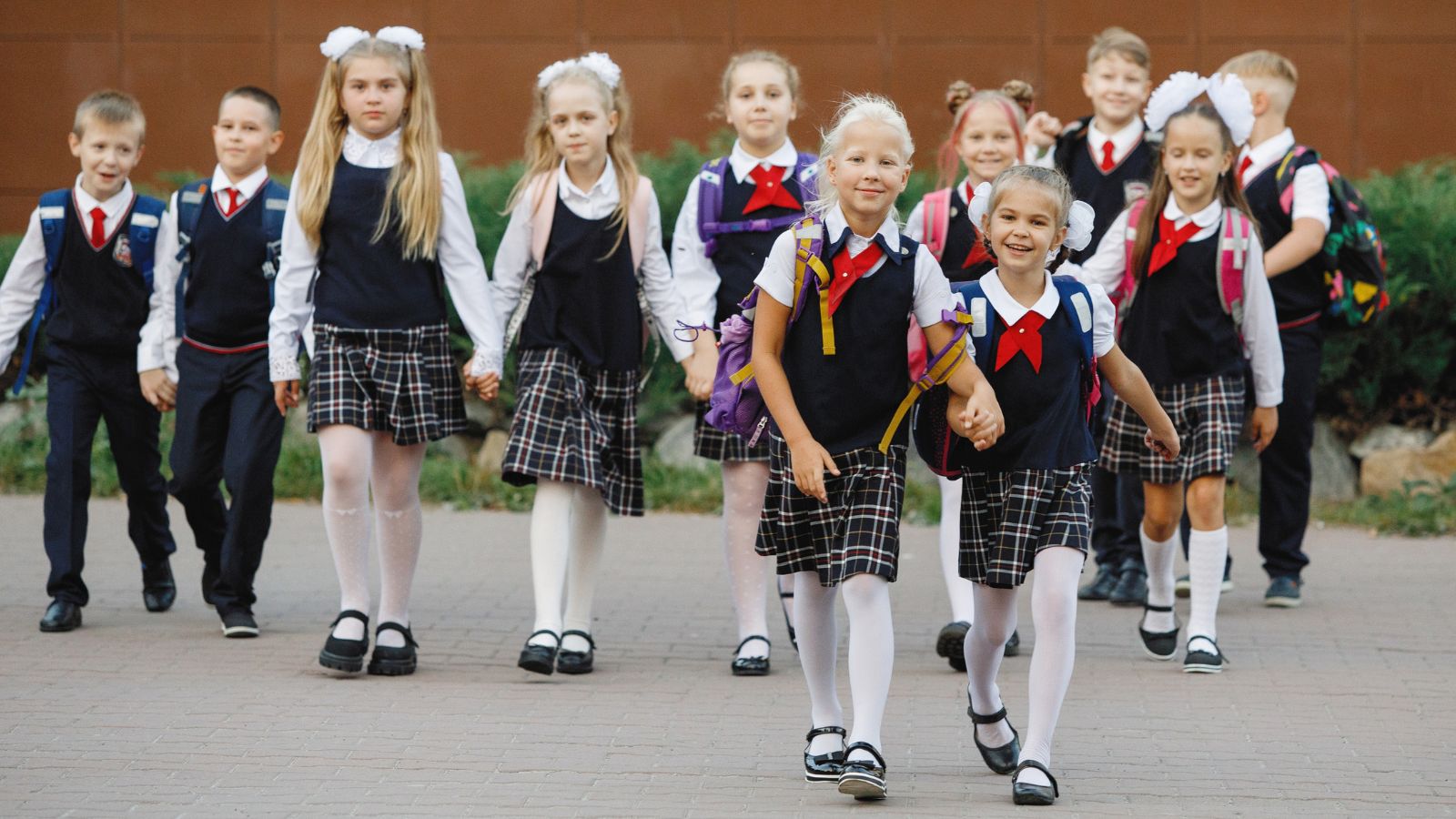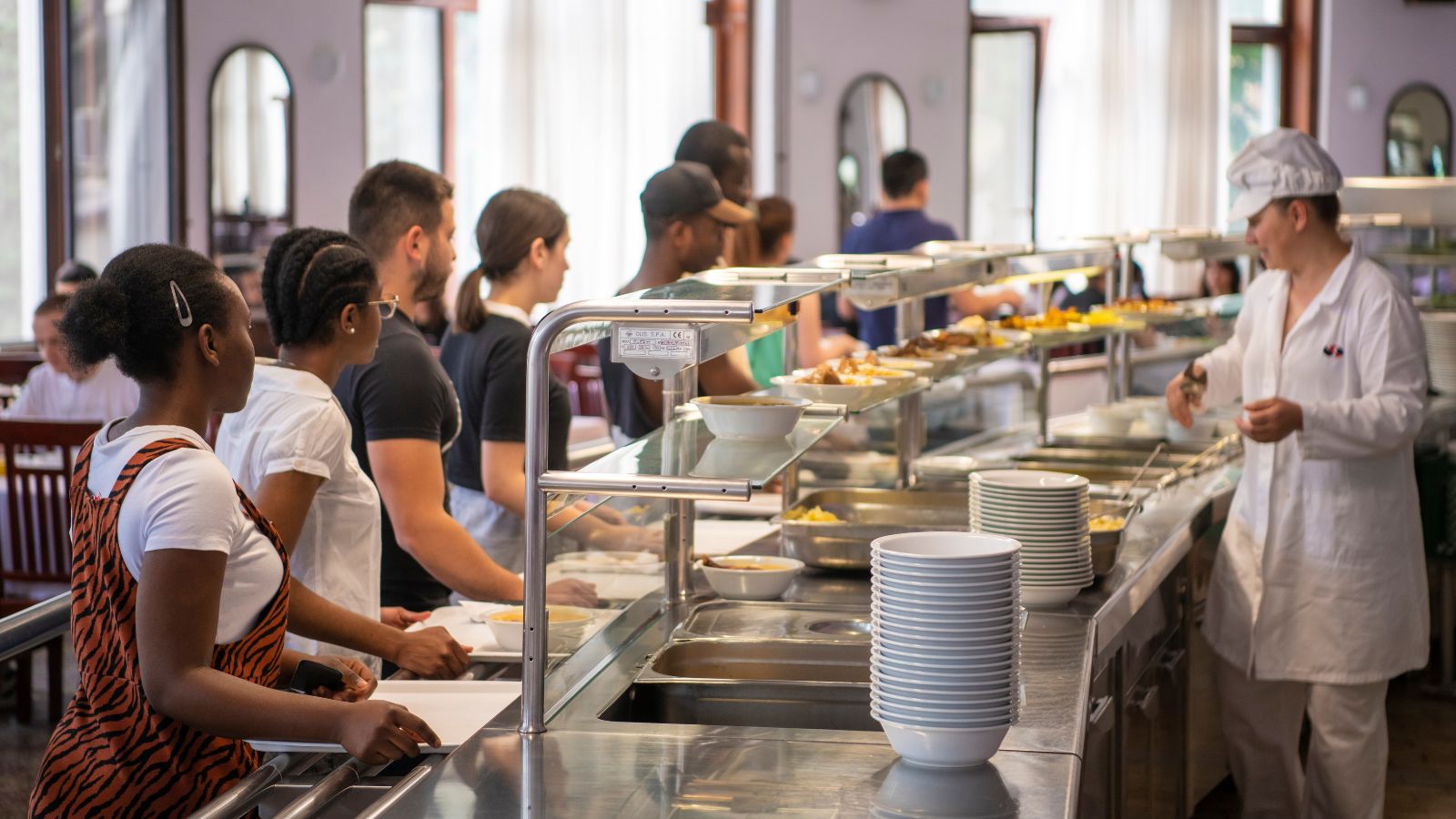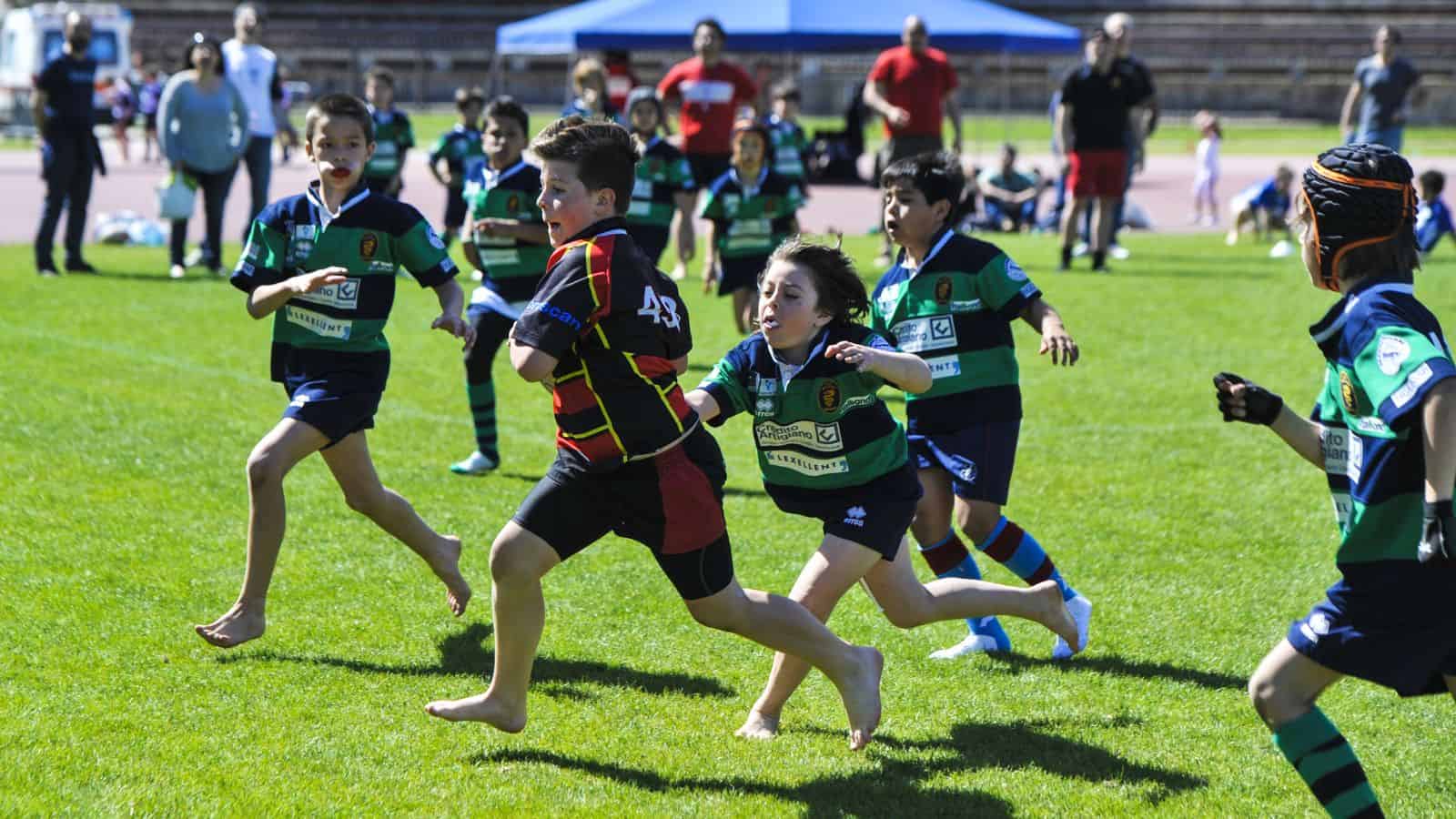If you’re a Brit, you no doubt look back on your childhood experience in primary and secondary school as fond, even if you didn’t enjoy it at the time. In the UK, our schools are full of unique cultural quirks that make them stand out from other schools around the world. So, to reminisce, here are 16 aspects of British schools that leave the rest of the world scratching their heads.
Strict School Uniform Culture

Unlike in many countries, uniforms are non-negotiable in most British schools. It’s not just about wearing them; there are strict rules about how they must be worn. Some of the classics include knee-high socks, specific tie knots and lengths, no trainers, and no piercings. All of this combined makes the uniform culture in the UK particularly rigid, and while we didn’t enjoy it at the time, Independent Education Today points out that it was likely very positive for everyone’s self-esteem.
House System

Many foreigners assume that the concept of school houses, popularized by stories like Harry Potter, is just something of a fiction, but in reality, you’ll find them in most British schools. Students are divided into houses for competitions, giving them a sense of belonging and purpose outside of class times. However, it’s pretty rare to find this house system anywhere outside the UK.
Summer Holidays

British students enjoy an arguably lengthy summer holiday, typically six weeks long. This extended break is one of the longest in the world, and it surprises those who are used to shorter summer vacations. However, despite how lucky we were, we never fully appreciated it once we found out that American kids get 10 to 12 weeks.
Compulsory Religious Assemblies

Most British schools hold daily assemblies with a religious element, often including prayers or hymns. In a country known for its religious diversity and secularism, this practice strikes many international observers as odd, and we’d have to agree. At any given moment, it felt like there were only a handful of children and teachers who actually believed in the religious materials we would read every morning and afternoon.
School Dinners

In the UK, school-provided meals, often referred to as “school dinners,” have their own culture, both bad and good. The expectation that students eat a hot meal provided by the school, complete with dessert, contrasts with the packed lunches more common in other countries. Some of us loved them, and some of us hated them, but either way, we can all agree that Jamie Oliver’s banning of Turkey Twizzlers was a crime against humanity.
Short Lunchtimes

In contrast to countries such as the U.S., lunchtime in British schools is often brief, typically around 30 minutes to an hour. This is surprisingly short, especially when you compare it to your hour-long lunch breaks as an adult. Sadly, the hurried pace of the British school lunch period leaves many wondering how students manage to relax and refuel in such a short time.
Early Start to the School Day

Yet another thing that Americans and other foreigners find shocking about British schools is how our school days tend to begin as early as 8:30 AM and at 9:00 AM at the latest. For many outside the UK, this early start is startling, especially considering that in some countries, schools don’t begin until much later in the morning. We’d bet you any money that if you asked a British kid what they’d prefer, they’d choose starting later.
Infamous School Inspection System

Any British adult will remember Ofsted inspections from their school days, which is a significant part of British school life. It essentially involved the school getting inspected and rated, creating immense pressure on the teachers. Naturally, the Ofsted season was always stressful, and you’d no doubt be given extra duties and stricter discipline by the teachers during this time.
Love for School Plays and Pantomimes

British schools have a strong tradition of organizing school plays and pantomimes, particularly around Christmas. This emphasis on theatrical performances, where even the youngest students participate, is a distinctive feature that baffles those from countries where such activities are less common or entirely absent.
Presence of School Prefects

Just like with houses, in many British schools, students can be appointed as prefects, a role that comes with responsibilities like supervising younger students and enforcing school rules. This practice, rooted in tradition, is often perplexing to those from countries where students do not hold such formal positions of authority within the school. We even have head boy and head girl in the UK, yet another tradition that foreigners assume is fictitious.
Lack of School Buses

Unlike in many countries where dedicated school buses are the norm, British students usually rely on public transport or walking to get to school. The absence of a widespread school bus system is unexpected for those accustomed to seeing rows of yellow buses lining up outside schools every day. To be fair, it would make a lot more sense, as our school commutes were always full of adults and kids crammed together.
Importance of School Governors

British schools have governing bodies, such as the PTA, which are made up of volunteers who play a significant role in school management. This involvement of non-educators in key decisions about the running of the school is a unique feature that can be hard to grasp for those from countries where school governance is strictly the domain of professionals. Regardless, we think it’s great that parents get a say in their kids’ education.
Concept of ‘Sixth Form’

The UK has a confusing section of schooling called sixth form, which refers to the final two years of secondary education in the UK, where students prepare for A-level exams. The terminology and structure of sixth form are often confusing to those from other countries and even to people from certain parts of the UK, who have no sixth form option and instead have college (not to be confused with American college).
Tradition of School Fairs

British schools frequently host fairs, known as fêtes, which are community events featuring games, stalls, and performances. These events are a significant part of school life, offering students and families a chance to engage socially. They’re really wholesome events, and while foreign visitors might find them confusing, they’ll certainly enjoy them.
School Field Days

Field days, or sports days, are an annual feature in British schools, where students participate in various athletic events. This focus on physical competition, often accompanied by parents cheering from the sidelines, can be puzzling to those from cultures where academic achievements are emphasized over sporting ones. However, we wouldn’t have it any other way, especially considering that it meant playing sports instead of studying!
Strict Exam Culture

Just like in any school around the world, exams are a central part of British education, with students facing major exams at multiple stages of their school career. However, the pressure to perform in these exams, particularly GCSEs and A-levels, is particularly intense. This focus on high-stakes testing can be bewildering to those from countries with less exam-centric education systems, and we can see why–it does feel a bit excessive.

